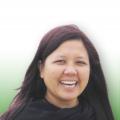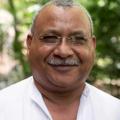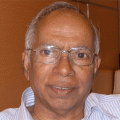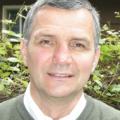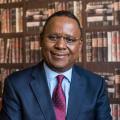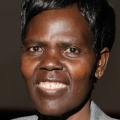
Dear Sisters and Brothers...
Much of the New Testament is actually other people's mail.
Read the ancient biblical letters carefully and you’ll find what still fills envelopes today: thank-you notes, appeals for money, travel updates (paired with excuses for not visiting sooner), and even requests to send along items left behind on previous visits: “When you come, bring the cloak that I left with Carpus at Troas, also the books, and above all the parchments,” writes the author of 2 Timothy.
These letters—affectionate, critical, encouraging, or exasperated—also evidence an intimacy among the members of the early church that transcended political borders. Even their frustration with each other points to the kind of crazy-making that only comes from family: “I have been a fool! You forced me to it,” Paul writes to the church in Corinth.
What would it be like if churches around the world still wrote letters like that to each other today? If we’re honest, most Christians in the U.S. don’t have much of a relationship with our global siblings. And to the extent we have communicated with Christians in other countries, we have far too often been the ones talking.
So we invited Christians from around the world to write letters addressed to the church in the U.S.; the subject matter was entirely of the authors’ choosing. We received letters, which we’ve reprinted here, from India, Honduras, Pakistan, France, Argentina, Kenya, South Africa, and the Wakka Wakka nation in Australia. Like the New Testament epistles, they offer a mix of pastoral advice and prophetic challenge—and a window into the global body of Christ. —The Editors
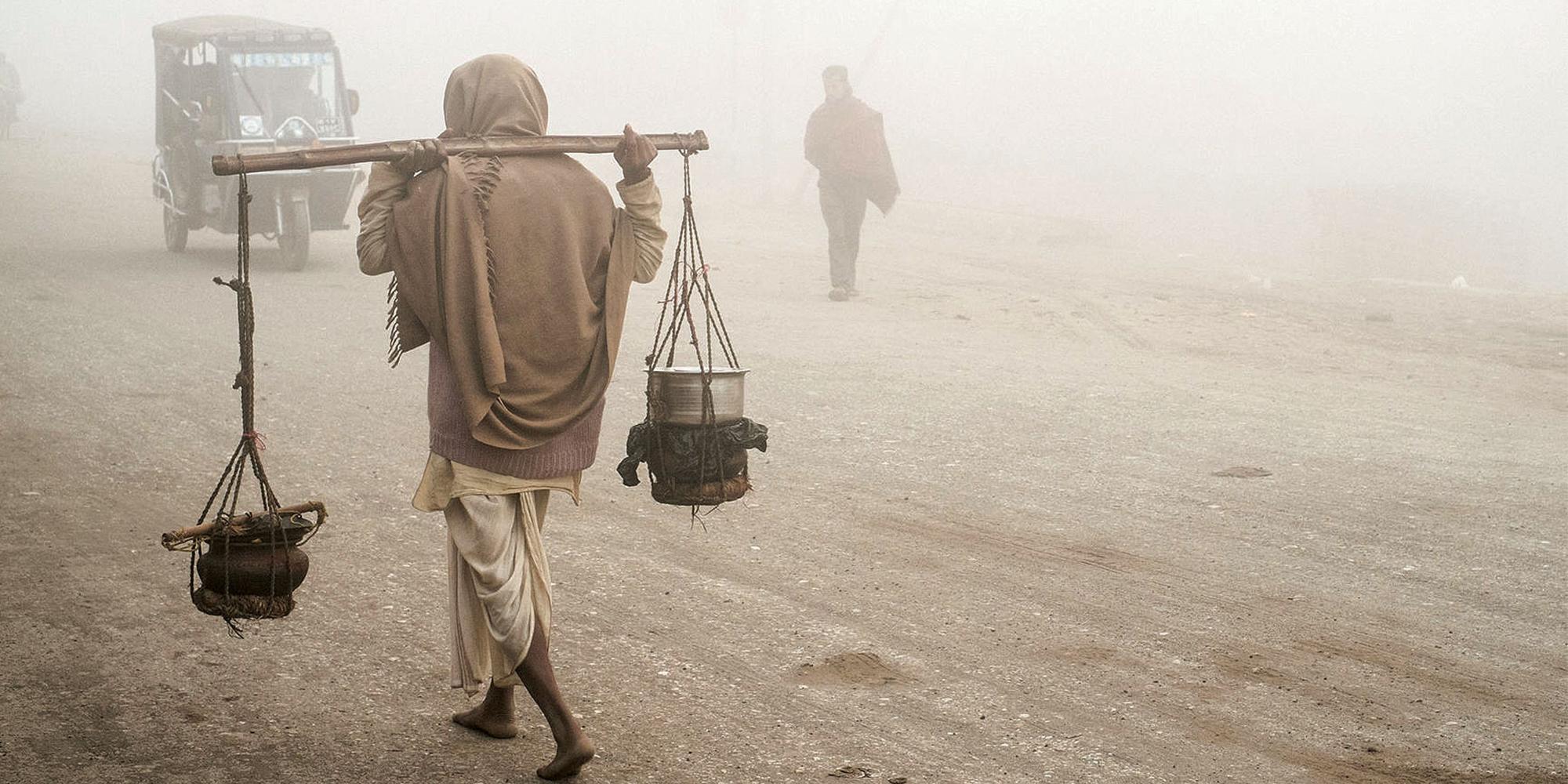
To a Nation That Has Too Much
Greetings from India! What a great joy it is to write to you. We are from different parts of the world with completely different cultures, yet we can call ourselves sisters and brothers because we are one family in Jesus. My hope and prayer is that this acceptance of one another—wherever we are from and however different we may be—will continue because we all are part of one body.
map.india_.jpg
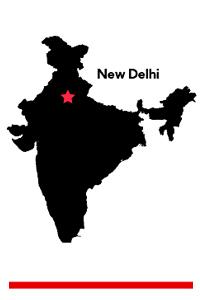
(2.3% of the population)
God has blessed your nation in so many ways. I am amazed at the beauty of God’s creation reflected in the people there from all races and cultures and in the rest of creation that stands as a mighty testimony to our God.
Your nation has a lot of influence around the world. I only need to turn on my television and I am bombarded by shows and movies from there. Sometimes we know more about what is happening there than in our own country. I would urge you to not take lightly this privilege God has given you.
As we imitate your life and culture, I pray that you will be an example of God’s people who in obedience to God’s calling are faithful stewards of God’s creation. Sometimes we see the exact opposite of that—we see you as a nation that has too much, that does not care about taking care of God’s world. You have access to so many resources—food, water, gas, all precious gifts from God—but we see so much waste and overuse. Just because we have it does not mean we should use it as much as we want.
Your nation—the most powerful in the world—has also pulled out of important international commitments. Sometimes I fear that this will lead to an even more rampant use of natural resources, which will have a devastating impact on the climate. And believe me when I say that climate change is real, because we live it and it has affected millions of lives in India—the biggest sufferers being the poor. It is like the death penalty for them.
I pray that out of you will arise leaders, teachers, workers—ordinary people living lives that honor God and God’s calling. May you be a people who will exemplify love. We want to imitate that.
The footprints of your people and the impact of your mission is evident around the world, including in my own country. I commend you on your generosity as well—so many have faithfully and sacrificially given so that people in my country can know about the reign of God.
In your generosity of your time and resources, I encourage you to think of righteousness and justice as well. Zacchaeus, when he encountered Jesus, not only decided to give half of what he had to the poor but also to return fourfold to those he had cheated. May your generosity be accompanied by making right what is wrong, speaking up on behalf of the poor, questioning the systemic injustice that continues to choke the poor and those at the margins, those who don’t fit in—even in your own country.
Be cautious about the kind of footprints you leave behind. Do we need what you have to offer? Is it building local communities? Is it relevant to the culture? Does it honor God? Many love to display generosity, but exercise caution as this can sometimes reinforce inequality where only one is the “giver.” I encourage you to learn from others as well—as we learn from you, be open to learn from us.
I pray that God would bless you and your nation—the greatness of America will rest not in its military might and global power but in the humility, sincerity, love, and passion of God’s people.
Kuki Rokhum
New Delhi, India
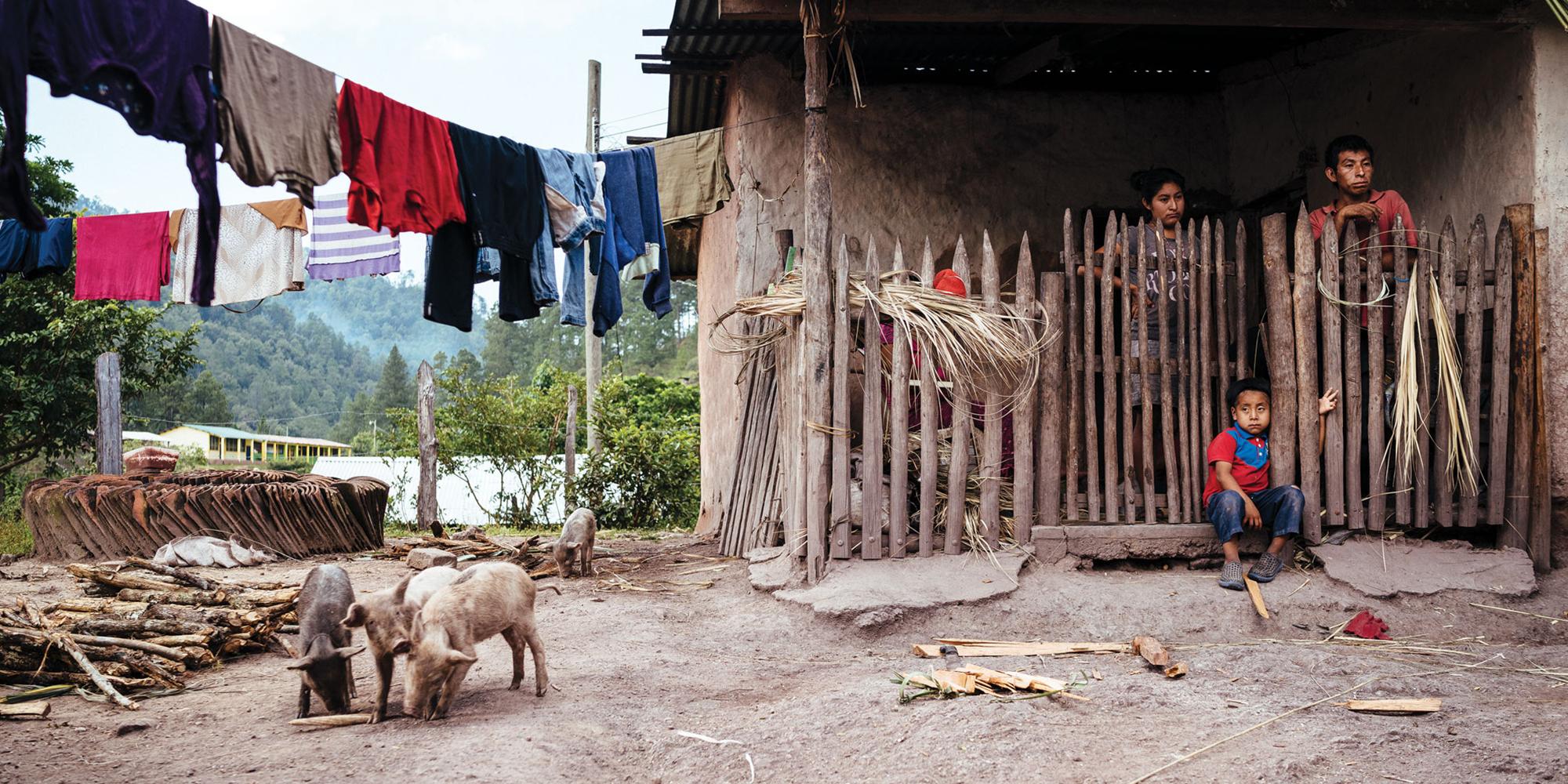
Try a Little Tenderness
I write with all the tenderness of my heart to encourage us to grow in our faith and to proclaim that success, money, private property, consumerism, and individualism must never take the place of true values, which have been marginalized in the United States and in our small countries. We must proclaim that we believe in the values that save us from the cold calculations that seek payment for every transaction—in the values of solidarity, shared austerity, community, and harmonious coexistence.
map.honduras.jpg
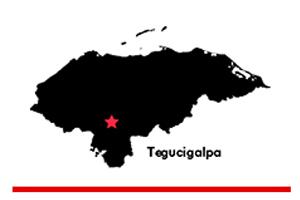
(87% of the population).
In this time of fear, in this time of walls and suspicion at our borders and in our hearts, it is our job as believers from the North and the South, from high places and low, to proclaim a society where we embrace one another. We are called to work for a society that builds bridges instead of walls, builds up solidarity instead of merchandise, and shares food instead of relying on markets to fill the stomachs of the hungry.
We cannot endure a world that abandons the needy, where everything has a price. Instead, we are called to joyfully sow the seeds of tenderness with a faith that breaks through religious affiliation, a hope that strengthens our beliefs, and a struggle that overcomes our hardships.
We have faith that we will begin to see small lights shining all over the United States. They will be lights lit from the margins to confront the powerful, and they will illuminate the community that believes and hopes. Not the lights of shopping centers or merchants, but the lights of communities that embrace one another in tenderness.
Padre Melo
El Progreso, Honduras
Being Church in an Islamic Country
We, the Christians of Pakistan, have been privileged for a long time to receive faith formation from foreign missionaries. We admire their selfless service. We thank them and try to continue their work. Yet there are hindrances to that work.
map.pakistan.jpg
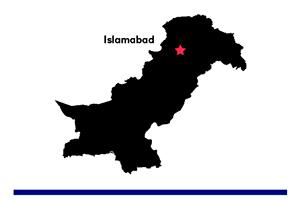
(0.5% of the population).
The church in an Islamic country is very different from the church in your country, so I’ll begin by telling you about our small church in the Islamic Republic of Pakistan. A very small percentage of our country is Christian. Those Christians have been born and raised here; they have not moved here from any other country. Yet many people in our country look down on these Christians, considering them to be allies of the U.S.
Though Pakistani Christians share a religion with many people in the U.S., we hardly know one another. We speak different languages. Our cultures are very different. Yet the typical Pakistani thinks that the Christians here are closely affiliated with American Christians and the government of your country. Nothing could be further from the truth.
In October 2001, the Bush administration attacked Afghanistan. President Bush boasted that there was no resistance and that the Afghans were knocked out in a matter of days. However, even today resistance continues, and the Americans are wondering how to get out of the war and return home. Pakistanis, including Christians, have suffered since then—more than 50,000 Pakistanis have died because of the war in Afghanistan, directly or indirectly.
A few weeks after the October 2001 U.S. bombing of Afghanistan, on a Sunday morning, a gunman came into a Catholic church in the Pakistani city of Bahawalpur and opened fire. Sixteen were shot dead. Christians went into mourning. Attacks on other Christian churches and institutions followed, again and again, to teach the Americans a lesson. But who was dying? Pakistani Christians.
People in the U.S. sometimes ask: “The U.S. gives Pakistan so much aid; why are you against us?” But much of the so-called aid consists of loans for military equipment. Pakistan has to pay back those loans, with interest—in other words, the money ends up in America. The poor in Pakistan do not even get the crumbs from the dining table of the rich. They suffer because of the war and they do not get aid for their development.
Your missionaries worked here and they helped us grow in the faith. We can never thank them enough. But almost all of them have gone home. Getting visas to work in Pakistan today is difficult. Other avenues must be found to be partners in the growth of the church here.
Bonnie Mendes
Faisalabad, Pakistan
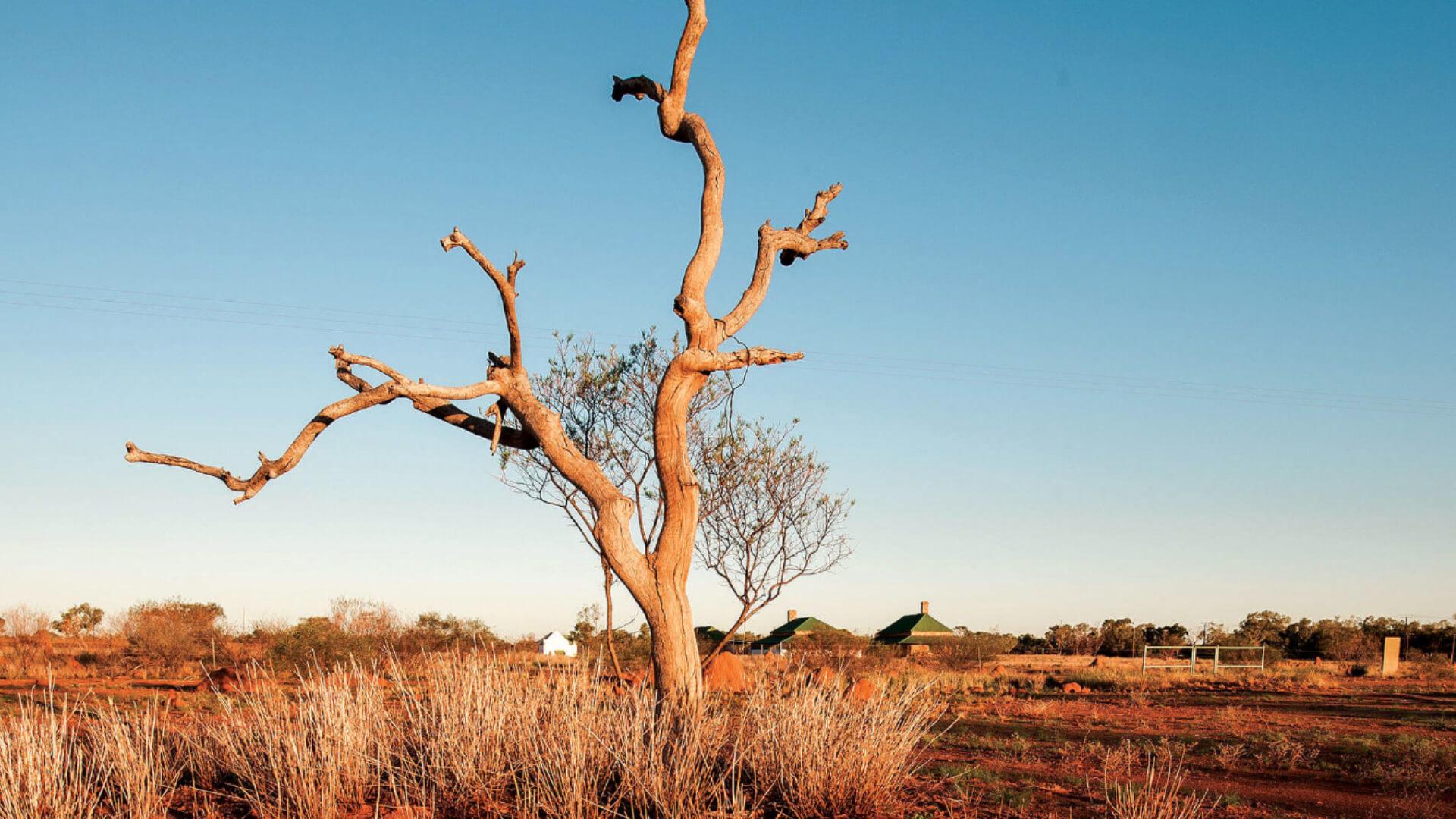
Deep Wounds That Have Not Been Dealt With
Galangul allara! G’day in the Wakka Wakka language! Wakka Wakka nation, my country, is one of more than 300 nations of Aboriginal peoples in the ancient lands now called Australia. Science says our peoples have been here for more than 65,000 years. We say our peoples have always been here, since time immemorial.
map.australia.jpg
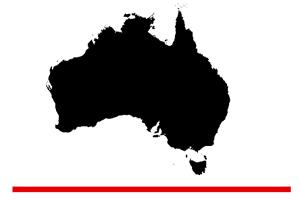
(73% of the Aboriginal Australian population)
I recently had the privilege to visit your ancient lands. In this visit I was honored and shown hospitality on a scale I have never received in Australia. I say thank you.
As I stood barefoot and connected with your land, I was troubled. I felt the same disturbance pulse from the land as when I do this in Australia. I could feel the land was unsettled. I could hear the land weeping and screaming. I could see the land was tired. These are the deep wounds of colonization, dispossession, racism—a true history that has not been dealt with.
While I was in the U.S., I found that your Indigenous peoples, just like Indigenous peoples in Australia, somehow become invisible. How is this possible when we are not invisible to the Creator? Creator has always seen us, created in the image of God, as Creator’s appointed custodians. Invisibility is another deep wound.
Your wounds are more than 500 years old, and our wounds are more than 230 years old.
The healing of deep wounds requires humbleness, prayer, and action. Are Australia and the U.S. ready to humble themselves? Ready to walk in truth, friendship, and prayer with their Indigenous brothers and sisters? Ready to challenge the “American story” and the “Australian story”?
Scripture says, “If my people, who are called by my name, humble themselves, pray, seek my face, and turn from their wicked ways, then I will hear from heaven, and will forgive their sin and heal their land” (2 Chronicles 7:14).
Friends, the time is now! Too many centuries have passed; let us not let one more day pass! Our lands, waters, and all peoples need healing. Let us sit in ceremony together on these ancient lands with the healing smoke—the smoke of the burning sage that rises from your lands to the smoke of the burning (eucalyptus) gum leaves that rises from mine.
My prayer echoes the calls from Indigenous Lakota theologian Richard Twiss: “So really what we would hope for is that the church would see us as co-equal participants in the life, work, and mission of the church, not [as] the perpetual mission field of the church.” My prayer and hope for the nation of Australia is that we the peoples will build an Australia on truth, justice, love, and hope. It’s my same prayer for the world. The church in the U.S. is part of that prayer and hope.
Will you, in the words of Indigenous Mi’kmaq-Acadian theologian Terry Le Blanc, “look into the voices of Indigenous theologians and hear the voice of God anew”? The time is now!
Brooke Prentis
Wakka Wakka nation (Queensland, Australia)
“Trust takes away your alibi”
Although I live in France, I write to you from Beirut. It seems like the most appropriate place from which to write to say the things I want to say to you. I have been here for a month preparing, with many Lebanese friends and a small group of Taizé brothers, a new step on what we have called “A Pilgrimage of Trust.”
map.france.jpg
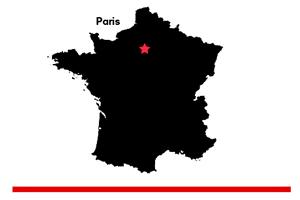
(64% of the population).
Our founder, Brother Roger, launched this pilgrimage when he came to Lebanon in 1982. The idea was to invite people to be part of a pilgrimage of trust across the earth, asking them to seek ways in which to build trust around them, especially in places where it has collapsed. It’s an adventure that has been going on since then.
I was with Brother Roger when he came here, and I remember what Beirut looked like back then. The war lasted 15 years, from 1975 to 1990, and as a result entire neighborhoods were bombed out. Snipers of different allegiances stood on the rooftops that now look so peaceful.
Brother Roger came to Lebanon to visit the mother of a young man who had been killed in 1975. His name was Ghassibe Kayrouz. Ghassibe had the intimation that he might be killed as he traveled from Beirut to his native village in the Bekaa Valley to celebrate Christmas with his family. So he left a letter for them that contained a single request: “If I’m killed, I ask you to forgive those who have killed me.” A few lines later, he added: “Pray, pray, pray, and love your enemies.” It’s become clear to me why he repeated “pray” three times. He knew that forgiving enemies is beyond our natural abilities. For it to become possible, we have to dig deep.
The Pilgrimage of Trust has led me to your country on several occasions. Two of the most meaningful times were for a gathering of young adults on the Pine Ridge Indian Reservation in South Dakota in 2013 and a few years later in St. Louis, in the wake of the killing of Michael Brown in Ferguson.
It’s in these two very different places that I understood more clearly what Brother Roger meant by trust. He used the word so frequently in the last 30 years of his life (he himself was killed in 2005) that one day I felt I had to ask him what he meant by trust or, as he would often say, “heartfelt trust.” His answer floored me. It included a word I never expected to find in an explanation on trust.
Trust for Brother Roger was not simply what helps you to sleep at night as you hand over your worries and concerns to God. He said this thing that seemed so odd at the time: “Trust takes away your alibi.”
It’s the word “alibi” that got me scratching my head. What did he mean? In St. Louis, I understood that looking squarely at reality—seeing racism, injustice of all kinds—is sometimes just too hard. We look for alibis, for excuses, pretexts that will allow us to run away, pretend the problems aren’t there or that they are for someone else to solve. Not necessarily because of selfishness, but because there are no easy answers, because there are no quick fixes, and perhaps we think there simply are no answers. And society, politics are so thoroughly rotten, it’s just a waste of time to try, right? It’s that kind of reasoning that delivers the perfect alibi for immobility, passiveness.
What does trust say? It certainly doesn’t say that if you try to change something in the broken world around you, success is guaranteed. It says: “You may fail, but you’ve got to try.” Success is not guaranteed, nor is failure. It invites you to risk.
So I write to you from Beirut, hoping you too will dig deep, pray, and find sources that will increase in you the desire to take such risks. As you do, you may very well find that your life will then take on a new meaning.
Brother Emile,
Taizé, France
Taking a Stand Against the Odds
map.southafrica.jpg
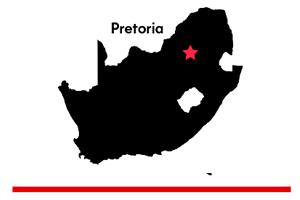
(66% of the population)
I greet you in the name of our Lord and Savior Jesus Christ who died for all of humanity so that all might have life, and that they may have it more abundantly (John 10:10).
As you know, the overwhelming majority of people in the world do not have this life, let alone abundantly. Instead, global political, economic, and social systems and structures are constructed in a way that produces more inequality and poverty. These international systems and structures are designed to secure the national interests of the powerful at the expense of the powerless.
Unfortunately, the United States, one of the most powerful countries in the world, is currently the leader in this negative power structure that can only produce conflict and war—the opposite of what our Lord died for. We experience the U.S. as a powerful country that pursues its interests irrespective of the consequences for the weak and powerless of the world. A power that has no respect for international law and governance systems. A power that trumps the carefully and painstakingly constructed multilateral system that is meant to make peace rather than war.
We are aware of the challenges you face as the church of Christ in the U.S., especially the diversity and differences among you that make it difficult for you to speak in one voice and share the gospel of the Lord that is meant to transform society and make the world what God intended it to be. Worse still, there are those among you who believe that this unilateralism that has no respect for any law is what God wills for the U.S. and the world. This borders on heresy!
We call on those who have seen the light of the gospel of Jesus Christ, the gospel of justice, peace, and righteousness, to be like Indian theologian Samuel Rayan’s candlelight that is “a protest at midnight,” a “nonconformist” witness that “says to the darkness, ‘I beg to differ.’” We pray that God will raise more prophetic voices from the church in the U.S. to take a stand against the odds—against the overwhelming darkness the world is facing now.
We know this will be costly, but that is what the gospel of the cross is about. We can’t defeat the darkness unless we defy it. And we can’t defy it without expecting it to muster all its power to stop us. We pray that the Lord give you strength and courage to boldly challenge the powers that be in the name of the Lord!
Frank Chikane
Johannesburg, South Africa
The Choice
I write you as a sister from Latin America who yearns to see peace and justice embrace on this suffering planet that is humanity’s home. I write you in hopes that you will ponder these questions in the spirit they are offered, that of a shared prayer that God’s good will be done on earth as it is in heaven.
map.costarica.jpg
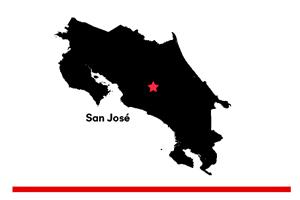
(86.7% of the population).
The core question I pose to you is this: What might it mean for you, citizens of an extremely powerful, prosperous, and plundering nation, to live in light of that prayer and your citizenship in God’s kingdom?
Engaging these more specific questions could contribute to addressing that broader one:
First, might worship of God, the creator and sustainer of all life, to whom the whole earth belongs, not be more faithfully embodied in responsible care of all that God created than in elaborate Sunday services while energy, creativity, and imagination the rest of the week are concentrated on consumption and accumulation without a thought for their ecological impact or the effects of privileged lifestyles on the great majorities both inside and beyond the borders of your nation-state?
Second, might confession of Jesus Christ as Lord not be more consistent with his reconciling peacemaking work when communities that claim to follow him embody humble, risky, selfless, equalizing inclusion rather than shielding themselves within bubbles of ethnic, racial, cultural, economic, partisan, or national likeness?
Finally, might submission to the gift-granting, truth-telling, life-empowering Spirit not be more honoring of the community of love when the gifts, revelations, and power granted are used in service of the common good far beyond the walls and trenches of church institutions rather than hoarded within them?
As the cultural scaffolding under your feet, Christendom as you’ve known it—the acritical association of Christian faith with the powers-that-be—crumbles, I see two options. You retrench and trace even tighter doctrinal and ideological lines, judgmentally demarcating who is in and who is out. Or you recognize the demise of cultural Christianity as a God-given opportunity for you to question where your core allegiance is rooted.
Before you lies the choice to demonstrate in refreshed identity, recast belonging, and reoriented lifestyle what the good and just reign of God looks like here and now, while you join your sisters and brothers from around the world in expectation of its full expression at Christ’s return. I, for one, pledge my prayers for you as you make that choice.
Your sister and co-citizen in Christ,
Ruth Padilla DeBorst
Santo Domingo, Costa Rica
Courage to Hope
As Christians across the world celebrated Easter this spring, we were reminded of Jesus’ commandment: “Love your neighbor as yourself” (Matthew 22:39). It is from this perspective that I write in solidarity, to share your anguish and your grief at the continual incidents in the U.S. of tensions, conflict, and violence, often racially tinged. I encourage you, as followers of Jesus, to lift up the hopes and aspirations of your fellow Americans and lead them on a path of renewal and, indeed, resurrection.
map.kenya_.jpg
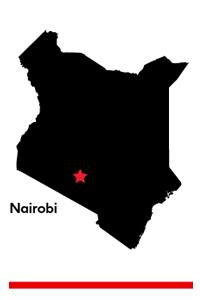
(83% of the population).
As a leader in the worldwide fellowship of Christian churches, and as one who constantly works in conflict zones, I know that racism affects every region and age. And I know that its close cousins—religious and gender violence—can engender delusions about others, so that misunderstandings are spun into myths and hardened into prejudice and hatred. I know that they can then become enflamed by demagogic rhetoric and systematized into patterns of segregation, unjust policies enforced by law and jurisprudence. They can distort and even threaten the survival of democracy itself.
America is no exception to this implantation of evil. Even though the U.S. was born of recognizing the truth of human dignity and human rights, its brightest insights and better angels were often shadowed by racial exploitation against Africans and then African Americans, genocidal violence against Native Americans, and hostility to immigrant groups.
In this perennial, titanic struggle of truth and justice against falsity and oppression, Christians have a redemptive role to play. In our private lives and our communities, we can offer healing and comfort to those traumatized by abuse or violence. We can seek out and extend friendship and fellowship to all, especially those who are sidelined by racial, economic, and gender inequality. In our public discourse, in our preaching, and in our activism and advocacy, we can remind everyone of America’s historic commitment to the biblically rooted vision of justice.
Finally, encouraged by the God of life and the resurrected Lord, we can lift up a vision of hope. Hope can see any situation with new eyes, nurture creative ideas, and strengthen wavering commitment. Hope reframes the present to kindle a new future.
America has so many friends around the world, and Christians in the U.S. are part of a worldwide fellowship of faith, hope, and love. As Christians, let us all reach out, across continents, across denominations, across the divides of race and class, to counter hatred and racism with God’s all-inclusive love. It is time to garner courage to hope in order to restore the dignity of God’s household. I pledge my solidarity, prayers, and support in that pilgrimage and endeavor!
Agnes Abuom
Nairobi, Kenya
Got something to say about what you're reading? We value your feedback!

